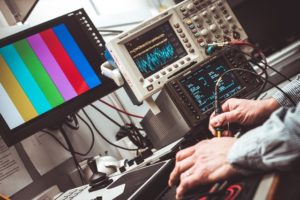Everything started with the Internet
 Self-empowerment. A single, simple statement that can summarise how the most important transformation brought about by the Internet. It is now possible to learn anything, anytime and anywhere directly if you would like to get yourself educated. The Internet is no longer a network of connected universities and their libraries but an organism with a lot of business aspects in it which offers borderless market access to businesses, schools and most importantly, to information.
Self-empowerment. A single, simple statement that can summarise how the most important transformation brought about by the Internet. It is now possible to learn anything, anytime and anywhere directly if you would like to get yourself educated. The Internet is no longer a network of connected universities and their libraries but an organism with a lot of business aspects in it which offers borderless market access to businesses, schools and most importantly, to information.
Initially, when the Internet was introduced to the public, security had the least or no concern where the entire product did not aim any profits to be taken. However, the situation today is very different in fact just the opposite. Security concerns require a lot of attention and profitability is the main objective of the entire thing. Imagine, access to the Internet is not different than basic human rights like access to clean water, vaccination but there exist increasing tensions between Internet Service Providers (ISPs) and content providers. Subscription plans, minimum speed and performance guarantees, network neutrality, quality of experience and others are all argument points that have a direct impact on the formation of the price that is offered to the end user. This is happening even before our access to the Internet. What about our post-access? There go tensions in cyber security between users, businesses and attackers.
As each action executed online leaves a significant trace, the Internet has become a very lucrative source to collect and then analyse data about people and naturally their behaviours while they are online. (Think of Google searches, which a recent research suggested that people are very much like their real selves when searching when compared to their personality on social media platforms.) This brought us the recent evolution of Internet of Things (IoT) as it is the connectivity of the Internet to the physical world now.
In view of its present attractiveness and profit-promising genre through data traces; we may expect continuous improvements in connection speeds, more wireless access at new spots as well as a significant share of artificial intelligence and machine learning surrounding the gadgets around us. The good news is that we will not be concerned over new issues but will have to maintain our existing ones on safety, security, privacy, resilience and robustness.
Presently, two main factors limiting one’s ability to access the Internet are affordability, lack of literacy with language skills. This is where the emerging markets are getting penetrated by developed countries now as it is a sure-win deal expanding their markets without borders. Does it matter for a website in Uganda to be hosted in the UK? Or why isn’t it possible not to route server connections from certain server hubs in the world but direct?
Okay, this was the business part. Let’s go back to our individual lives. With the help on IoT, it is possible to enhance not only lives but also business volume. For example, think of a farmer using a simple IoT gadget (one of the 50 billion to be in circulation by 2020) in his farm that streams only 2 basic information to him: weather forecast and present rate that crops are sold. This instant information will get him make informed decisions instantly too. He can plan his day, he can decide on the type of crops he would like to focus more. And he’ll not be underpaid by the middle-man that trades his products. Or imagine him using a drone to dispatch sample of his crops to a trade hub. No traditional roads are required, no supply routes are necessary. Point A to Point B. Simple. Straightforward. This concept (adaptability to IoT and reflections of it to our daily lives) will get us to a future where cities will be defined not by their geographical locations but common interests.
If you think carefully, you will observe that Google has started connecting these dots for some time now.
IoT is expected (and already giving promising signs now) to play a key role in enhancing the wellness and the sustainability of the planet. We are already combating with overconsumption of raw materials, pollution from fossil fuels, industrialised farming, the destruction of forests and numerous other effects of modernity. IoT has the capacity to play a significant role in addressing these challenges and ensuring the welfare of future generations.
So, isn’t it better to get started learning about IoT now and be part of these changes earlier? The IoT Academy has plenty of good courses to choose from and caters a wide range of audience from all ages to meet the future. Hurry, contact us now to find out more!
 Silicon Valley, the high-tech universe known to every living soul on this planet is focusing on a single thing: Technological Innovation. Anyone who is a tech user and connected to “something” is already a part of 640 terabytes of data being populated every minute. Location information, Google searches, your connectivity to a telco, Facebook, Instagram, photo uploads, cloud drive services and so on. And yes, every minute 640 terabyte of data is populated.
Silicon Valley, the high-tech universe known to every living soul on this planet is focusing on a single thing: Technological Innovation. Anyone who is a tech user and connected to “something” is already a part of 640 terabytes of data being populated every minute. Location information, Google searches, your connectivity to a telco, Facebook, Instagram, photo uploads, cloud drive services and so on. And yes, every minute 640 terabyte of data is populated.